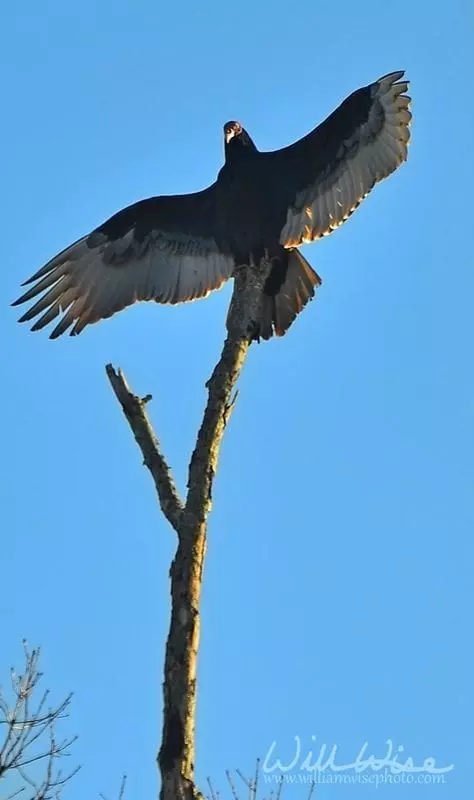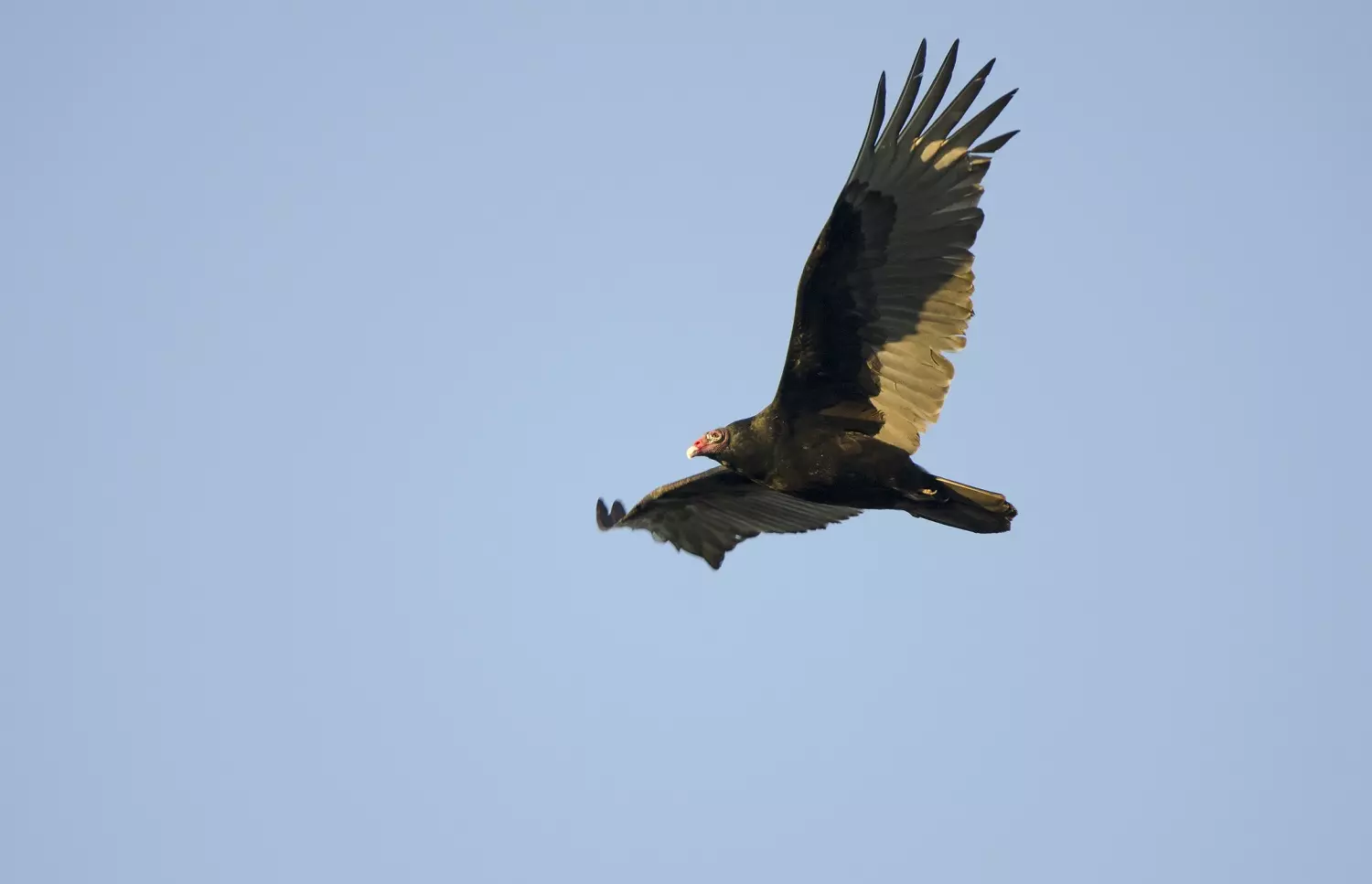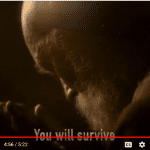[Originally published as Designed for Dirty Work Part 2]
PERFECTLY DESIGNED TO DO HIS WILL…
- Eye Black. A vulture spends much of its time soaring in the sky looking for his next meal. To enhance their ability at spotting their job, they are designed by God with black around their eyes to reduce the glare of bright sunlight. The Turkey Vulture’s red head has black stripes under his eyes like the black greasepaint under a football players eyes. (xiv)
- Sense of Smell. While we would rather not smell the odor of a dead animal, the vulture is designed with an enhanced sense in order to locate that next rotten carrion meal. The part of its brain responsible for processing smells is particularly large compared to other birds. It can detect just a few parts per trillion which allows it to find dead animals below a forest canopy. (xv)
- Featherless heads. Eating a carcass is nasty, but imagine eating one with your hands tied behind your back! You would be forced to stick your face right into the cadaver. All the putrid flesh and guts would stick in your hair. (God help you if you have a mustache and beard!) Vultures are designed by God with featherless heads. A bald head of skin, rather than a feathered head, makes it much easier to shake off those nasty bits of bacteria-laden carrion after a hearty meal.
- Strong stomachs. Few stomachs in the animal kingdom can match the strong stomach of the vulture. Vultures can eat carrion that has lain rotting for days and has succumbed to the effects of decay and disease. God gave them strong stomach acids to kill the bacteria of the rotting flesh before it makes them ill. Their stomach acids are almost 1,000 times more acidic than ours; so acidic that it can dissolve many metals! (xvi)
- Acidic Urine. When you stand around rotting road-kill, your feet and legs have the tendency to become contaminated. The vulture was designed with strong, acidic, bacteria-burning urine. After each meal he urinates down his legs to burn off the bacteria and “clean” his feet and legs. (xvii)
- Immune system. To battle the host of bacteria and diseases in rotting flesh, God has equipped the vulture with an incredible immune system. Vultures are noted as having one of the “strongest immune systems of all vertebrates” and there are few food-borne diseases that truly pose a threat to it. They are immune to botulism and anthrax; they also have no problem eating an animal infected with rabies, hog cholera and numerous other diseases that would ultimately be lethal to most other scavengers. *(xviii)
It is clearly illustrated that the vulture is perfectly designed to accomplish his God-given job of carcass clean up. God not only gives His creatures a specific job, but equips them to complete that job. We too are created, designed, and custom made to do the will of God. He has equipped us with talents, abilities and personalities to do His will. And the will of God is the only thing that matters in life. Jonah’s biography begins with his call to Nineveh. From an eternal perspective, nothing else that had occurred in Jonah’s life up to this point was worth chronicling in Scripture. His God-appointed job was the most important thing in his life. Jonah was created for his time and purpose. The will of God is what is most important in our lives.
STOPPING THE PLAGUE…
Vultures are known as “dead-end hosts” and do not further spread diseases. Think about it, as other animals come to feed on a rotten corpse, they end up with bacteria on their heads, feet, feathers and fur. Finishing their meal, they then walk off with contaminated footprints, go back to their dens, raid the cat food in your garage, pollute the stream, and pass it on through their feces to other animals to get sick and spread further. But with vultures, the strong acids in their digestive systems kill off most bacteria present in carrion. So when a vulture eats a diseased animal, the spread of the disease ends there because it will likely be neutralized by the vulture’s body. Therefore, in areas with a high vulture population, the risk of disease spreading from dead bodies is relatively low. However, when a vulture population declines, the rate of disease will climb as the bodies of animals are inevitably left to rot and are consumed by, not dead-end hosts, but potential carriers. (xix)

God puts a hold on the spread of bacteria and diseases by assigning carrion clean up to the vulture. But aside from this practical aspect, the vulture speaks a valuable lesson: we Christians are called to halt a plague. Like Aaron with his flaming censer, we are to place ourselves in front of the tide of advancing sin and decay; to “stand between the living and the dead” and preach the cleansing Gospel of Jesus Christ. We do this by simple obedience to the will of God. But will God find us, like the vultures, ready and willing to “do the dirty work” which He has assigned us? Can creation speak to us? If a vulture can stick his face in a putrid carcass without complaint, can we not be willing to do the will of God? If Jesus can silently accept the cross shouldn’t we accept any job which always works to the good in our lives?
xv http://www.allaboutbirds.org/guide/Turkey_Vulture/lifehistory
xvi http://www.todayifoundout.com/index.php/2014/10/dont-vultures-get-sick-eating-dead-things-cant/
xvii see note xiv
xviii http://www.todayifoundout.com/index.php/2014/10/dont-vultures-get-sick-eating-dead-things-cant/
xix ibid
xx Jonah 3:5
xxi Numbers 16:48







Thanks, William. This is a great read. God is such an amazing designer.
Vultures have such a beauty that you’ve highlighted her. And I love your illustration.